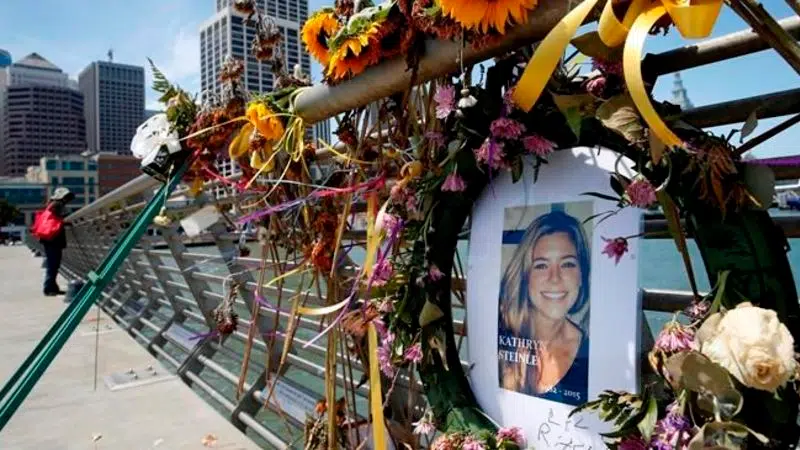
Court reverses sole conviction in San Francisco pier killing
SAN FRANCISCO — A California state appeals court on Friday threw out the sole conviction against an immigrant who fatally shot a young woman on the San Francisco waterfront in 2015 in a case that sparked a national immigration debate.
Jose Inez Garcia-Zarate was acquitted of murder in the killing of Kate Steinle, who was walking on a pier with her father when she was struck by a bullet in the back in July 2015. The appeals court overturned a single conviction on a charge of being a felon in possession of a gun.
The case against Garcia-Zarate, who was in the country illegally and had been deported five times, was a regular talking point in Donald Trump’s 2016 presidential stump speeches.
The 1st District Court of Appeal overturned the gun conviction because the judge failed to give the jury the option of acquitting Garcia-Zarate on the theory he only possessed the weapon for a moment.


